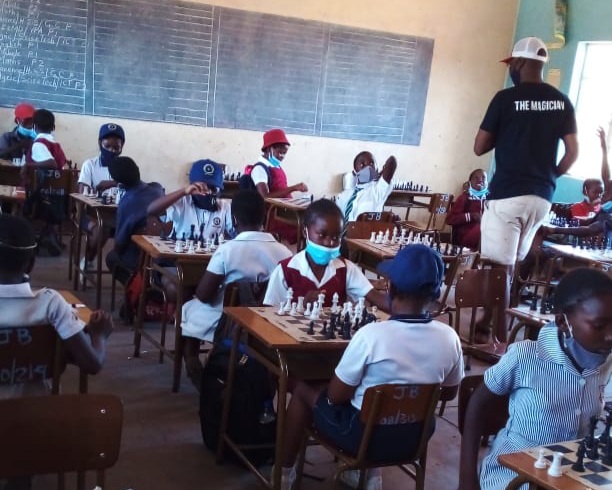BY FORTUNE MOYO
Two years ago, Sibusiso Dube got into an altercation that could have radically altered the course of his life.
He was 18 years old at the time, and he and a friend started arguing about the outcome of a bet.They decided to settle the matter with their fists.
“In my neighborhood, settling scores by engaging in street fights was just a way of growing up among teenagers,” Dube says.
“Half the time, they were not serious fights, and people often made peace afterward.”
Dube won the fight and believed that would be the end of the matter.
But his friend, Mandla Nkomo, reported the incident to his brother, who called the police.
Later that day, officers arrived at Dube’s home and arrested him for assault.
He spent the night in jail, facing the prospect of a trial and possibly a prison sentence.
A criminal record would bar him from government employment and make it exceedingly difficult to obtain work in the private sector.
“I was stunned and confused,” Dube says. “Why was I being arrested for something which always happened in the neighbourhood?”
But the next morning, Dube was released into his mother’s custody and given a reprieve: A social worker informed him that his case wouldn’t be going to court after all.
Instead, he was to participate in a new pre-trial diversion programme designed for young people like himself.
Rather than serving time in prison, he would be offered counselling and vocational training, and he would need to participate in mediation sessions with Nkomo and offer the family some form of reparation.
If he completed the programme successfully, he would not have the stigma of a criminal record.
The pre-trial diversion program could soon benefit more youth like Dube.
The programme — which started in 2016 as a pilot project between the Ministry of Justice, Legal and Parliamentary Affairs and the United Nations Children’s Fund, known as Unicef — is currently running in four cities.
The government plans to expand it nationwide.
The programme is designed for young adults under the age of 21 who have committed less-serious offenses, such as theft, assault and unlawful entry, which ordinarily would carry prison sentences of 12 months or less.
The government launched the programme after realising that incarceration wasn’t an effective pathway to rehabilitation for juvenile offenders, says Ziyambi Ziyambi, minister of Justice, Legal and Parliamentary Affairs.
Imprisoning young people with hardened criminals, the government found, often led to young people becoming hardened criminals themselves.
Inmates in Zimbabwe’s prison system have long suffered human rights abuses.
Juveniles, especially, have suffered from a lack of legal representation.But in recent years, the country has worked to improve conditions within prisons and put more emphasis on rehabilitation and reintegration into society.
The pre-trial diversion programme is part of that effort. Since it began, about 4,000 young people have completed it.
“The programme has achieved its goals, because it is meant to ensure that juveniles are not exposed to hardcore criminals over minor offenses,” Ziyambi says.
It now operates in four cities: Harare, Bulawayo, Gweru and Kadoma.The government could start expanding the programme by the end of the year.Such programmes are fairly rare in the region, although South Africa has one with similar objectives.
“We plan to ensure that the program is rolled out to all districts in the country so that all juveniles have access to the program and juvenile justice is uniform across the country,” Ziyambi says.
Diverting juveniles from the formal criminal justice system also helps to reduce pressure on the country’s overcrowded prisons, Ziyambi adds.
The capacity of the country’s prison system is 17,000. As of March, more than 20,000 prisoners were incarcerated.Social reintegration also is a key goal of the program.
“The pre-trial diversion option is in no way intended to make offenders less accountable or responsible for their actions, but rather to provide offenders with the opportunity to rethink their lives,” says Gerald Matiba, executive director of the Christian Legal Society of Zimbabwe, which offers free legal advice, counseling and psychosocial support to juveniles involved in the diversion programme.
Once a young adult has a criminal record, society tends to shun and stigmatise them, Matiba says.
By forcing juvenile offenders to take responsibility for their actions — while also addressing other social, family or community issues that may be contributing to their behavior — the diversion program makes it easier for young people to be accepted back into their communities and avoid further run-ins with the law.
Young people who exhibit delinquent or criminal behavior often have experienced peer pressure, lack of parental guidance or supervision, abuse, neglect, or alcohol and substance abuse, Matiba says.
Addressing these issues can take time, and there is no specific timeline for completing the diversion programme.Some offenders complete the programme in three to six weeks, Matiba says, while others can remain in the programme for months.Dube says after going through the programme, he understood that what he did was wrong, and he had to apologisze to his friend and his friend’s family.He also had to do gardening at his friend’s place for about a month to show remorse and as repentance for his deed.
Looking back, Nkomo says he didn’t intend for his friend to be arrested, but he is glad the diversion programme allows young people to avoid letting silly decisions in their youth ruin the rest of their lives.Dube was able to receive vocational training, and he now works as a mechanic.He says if he had been incarcerated, his family and community would not have supported him as they did after he had completed the diversion program.
“Once one has a criminal record, family members and society stigmatize you,” Dube says.
“So I believe the fact that I did not get criminal record, it was easier to reintegrate into society.” – Global Press Journal

 Slider1 year ago
Slider1 year ago
 News1 year ago
News1 year ago
 Tourism and Environment2 years ago
Tourism and Environment2 years ago
 News3 years ago
News3 years ago
 News2 years ago
News2 years ago
 News2 years ago
News2 years ago
 News1 year ago
News1 year ago
 News2 years ago
News2 years ago



